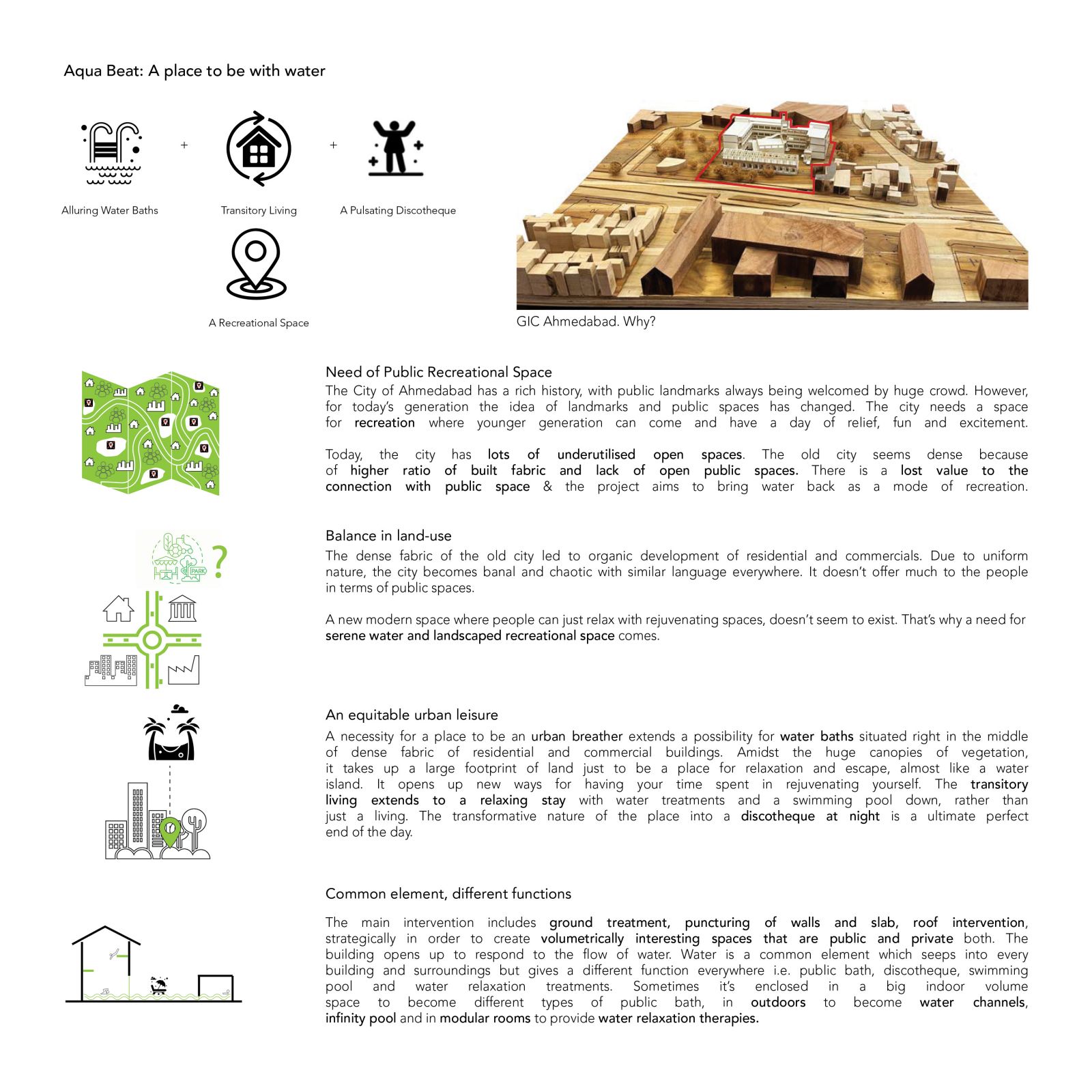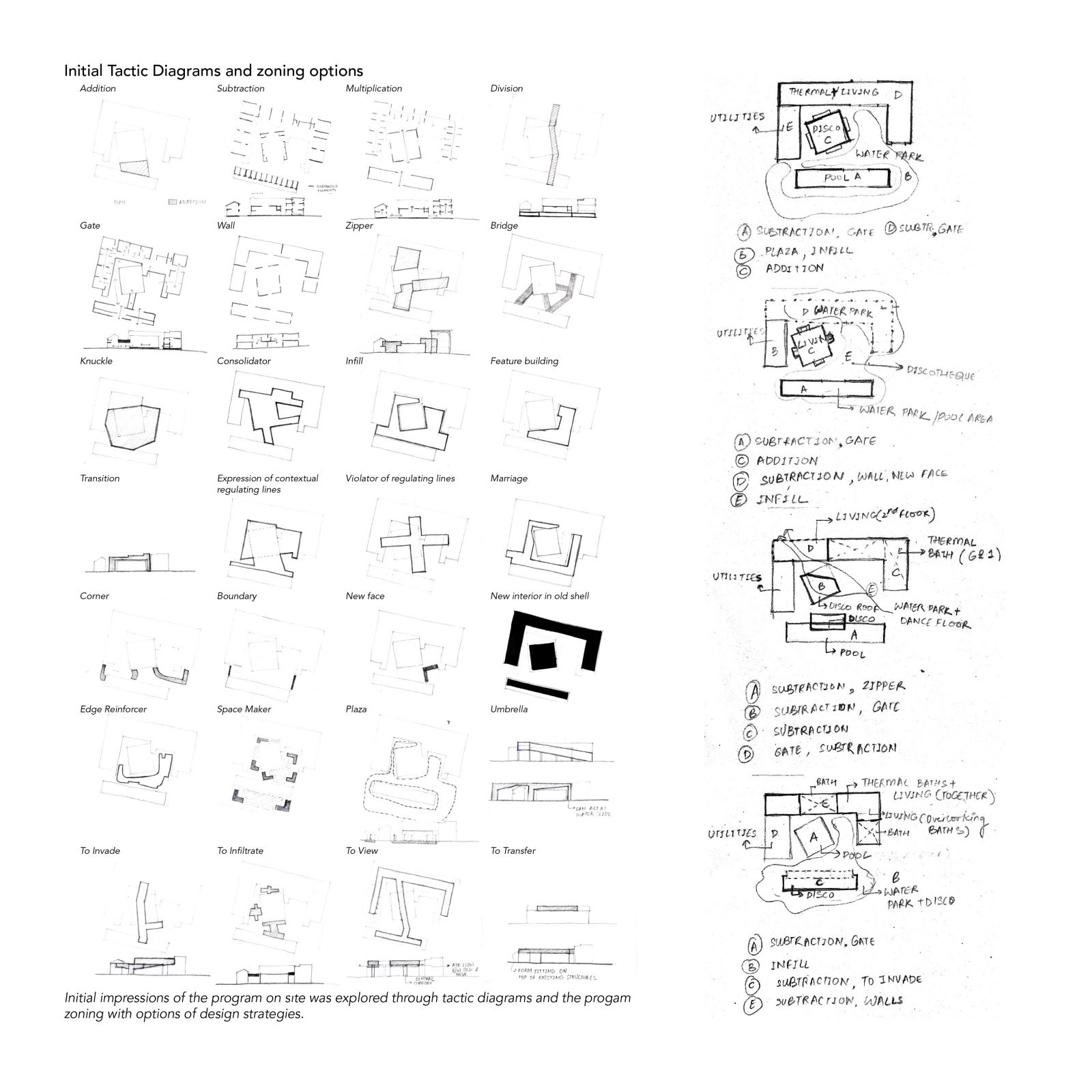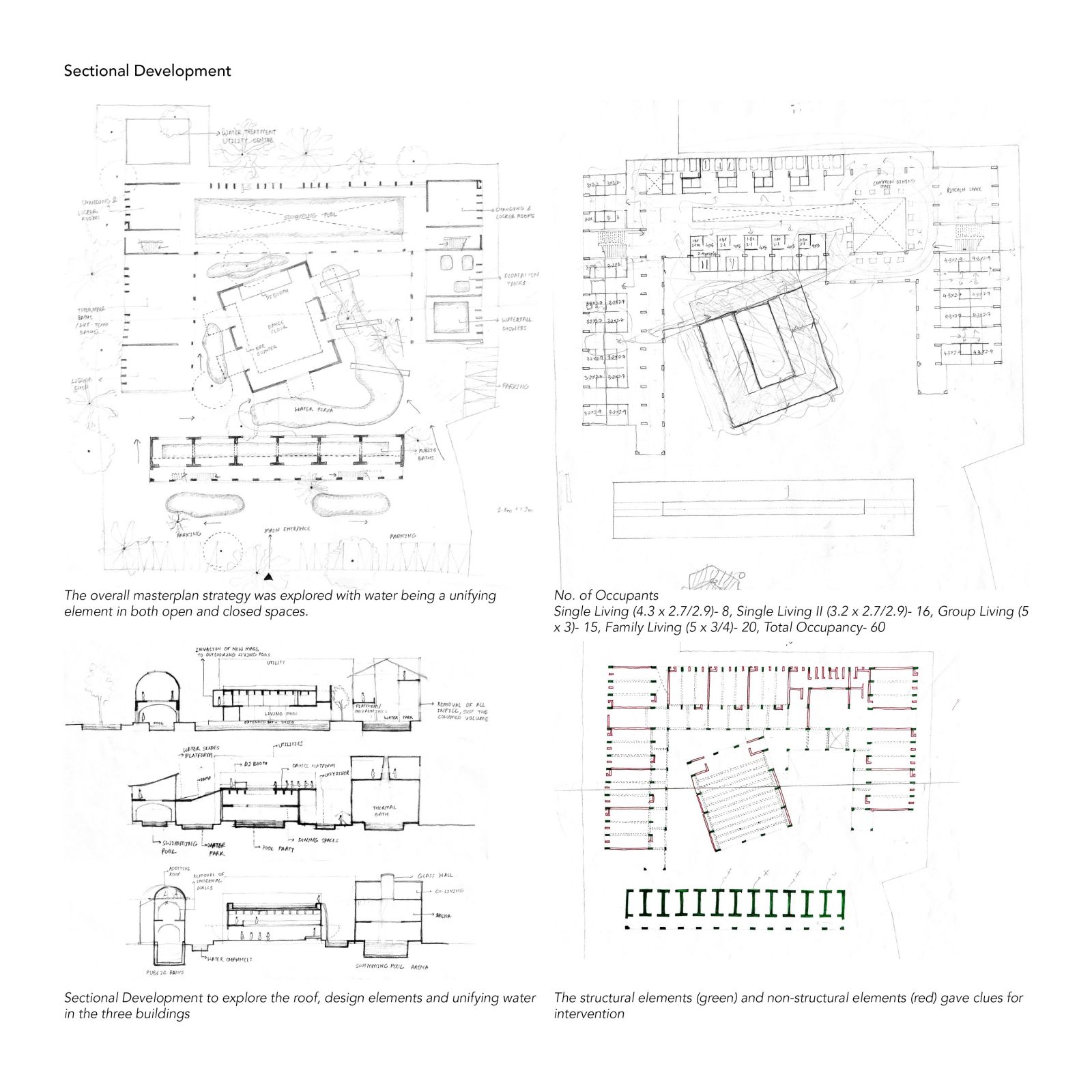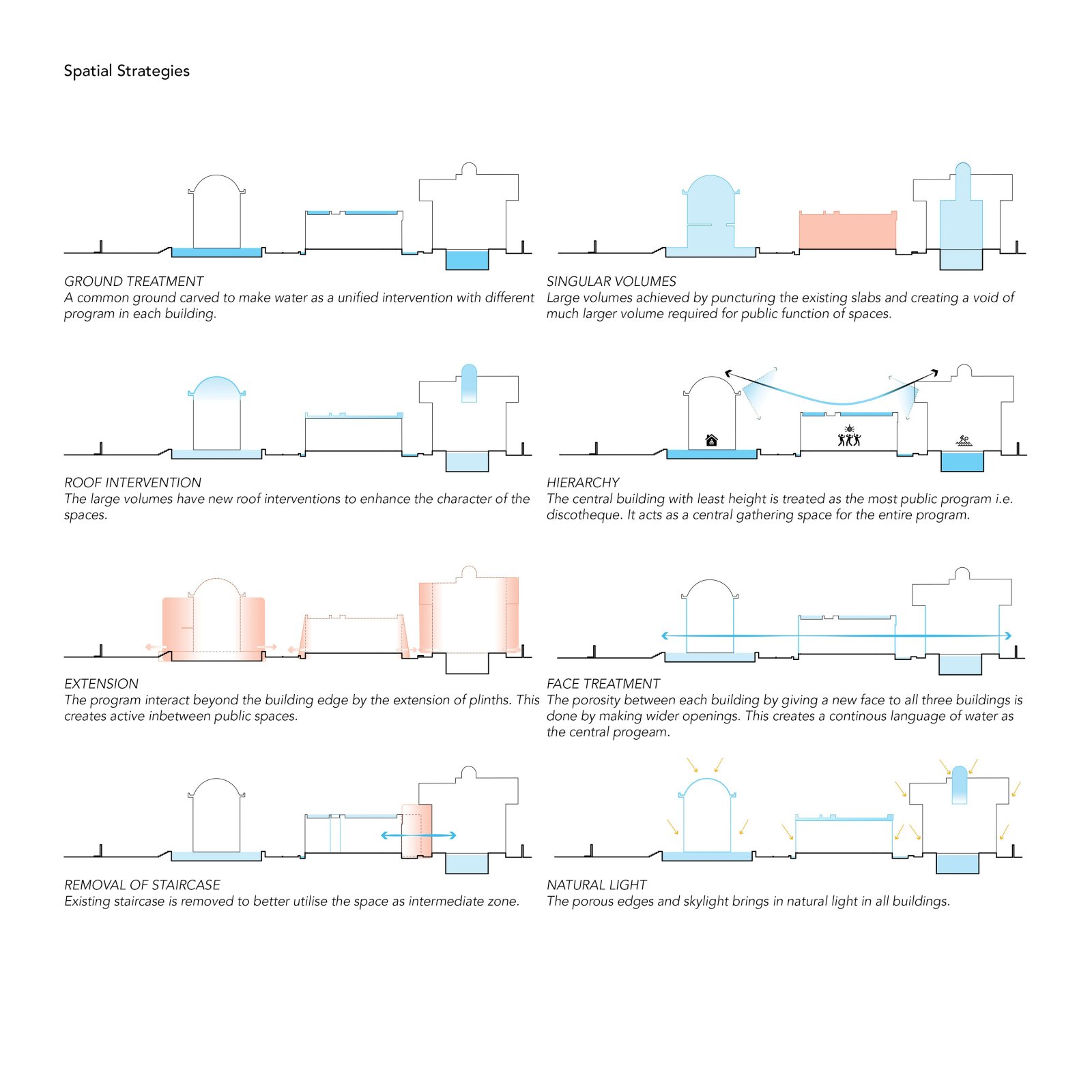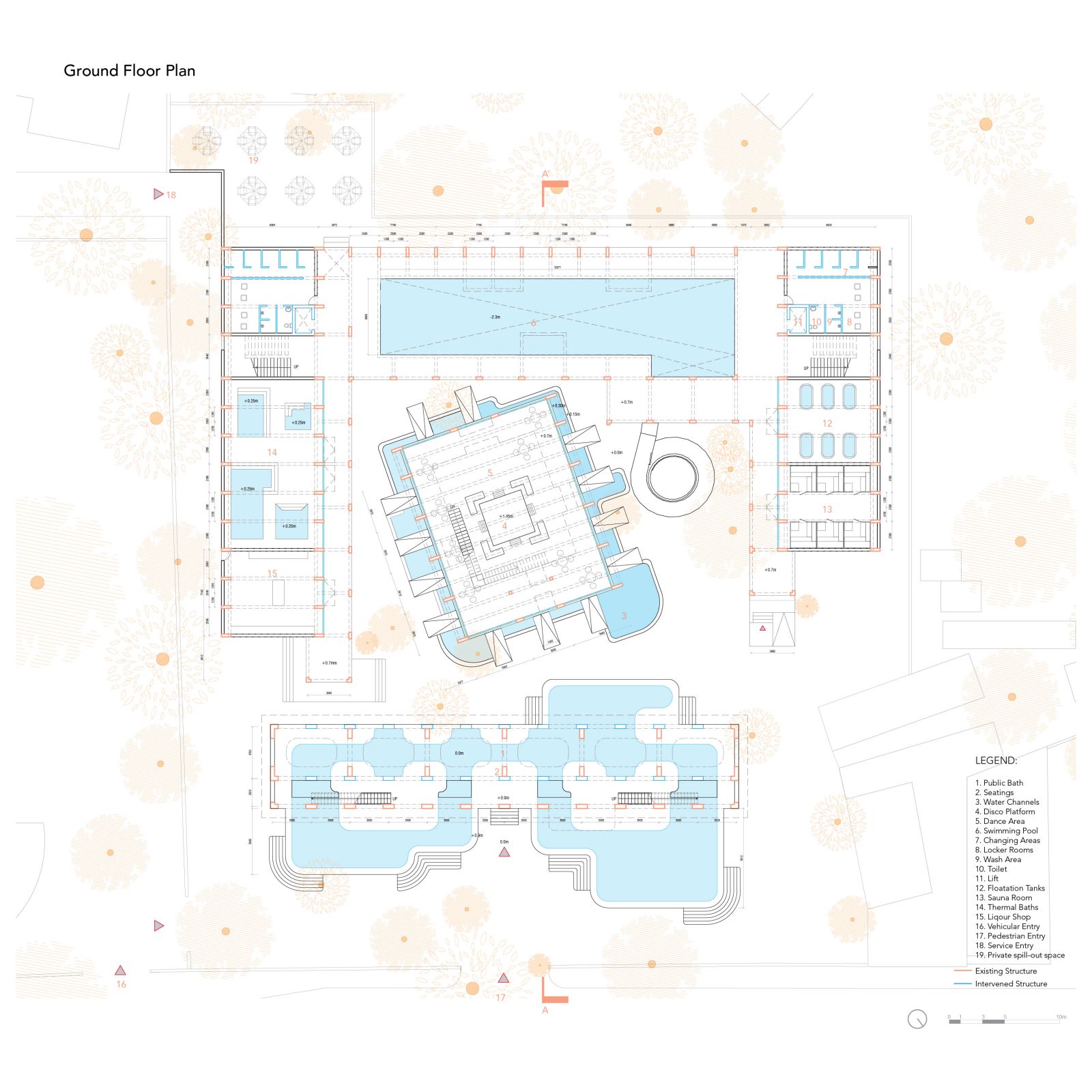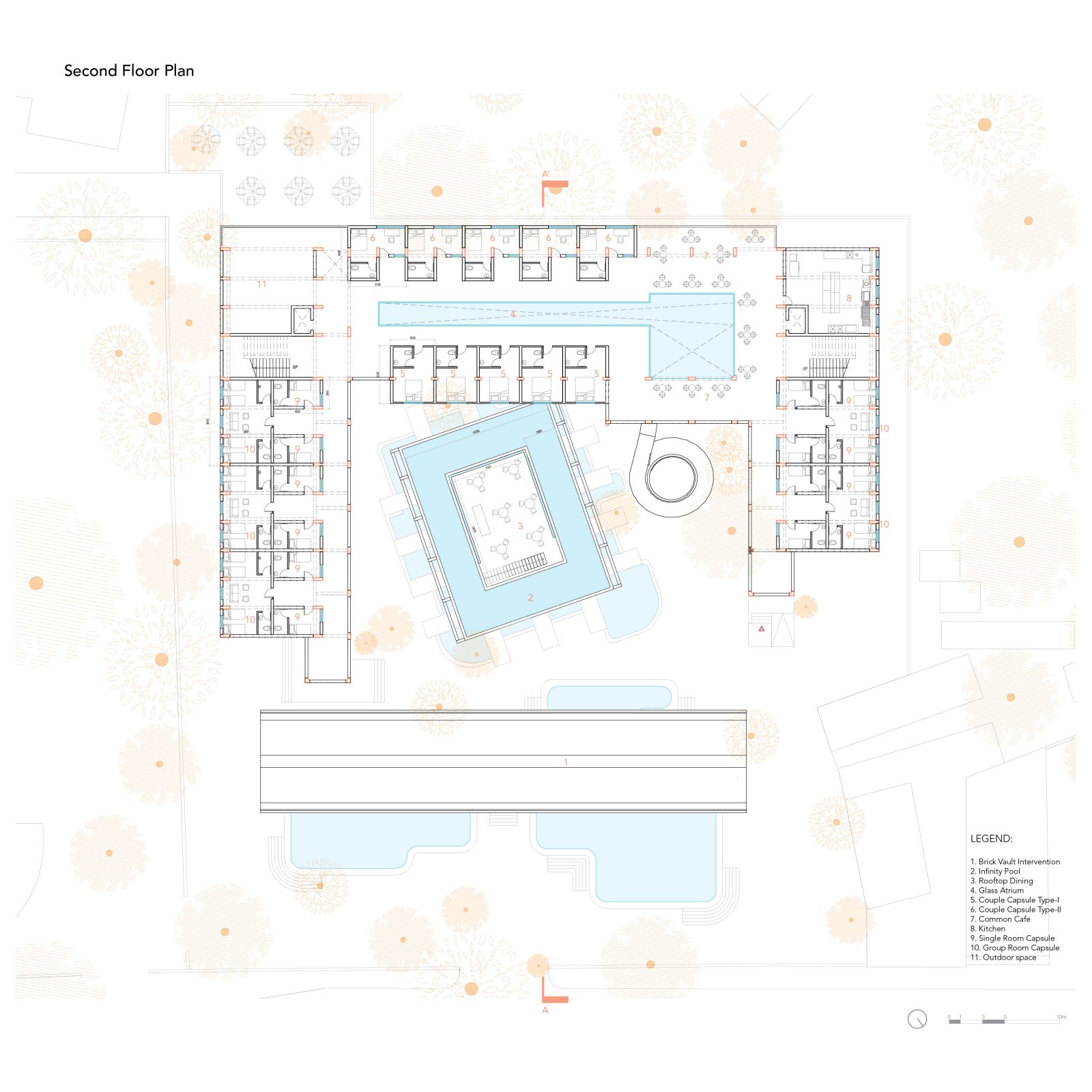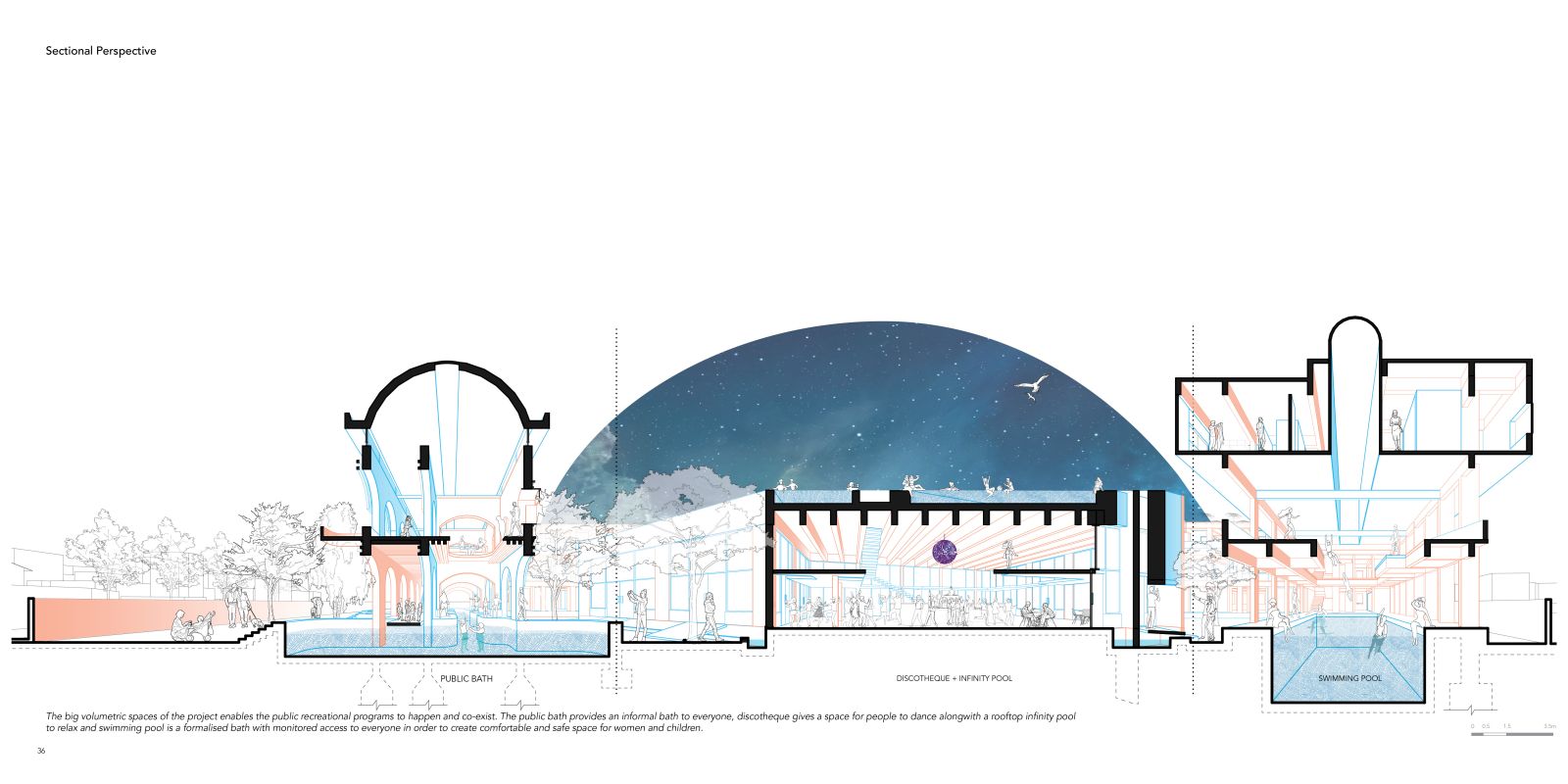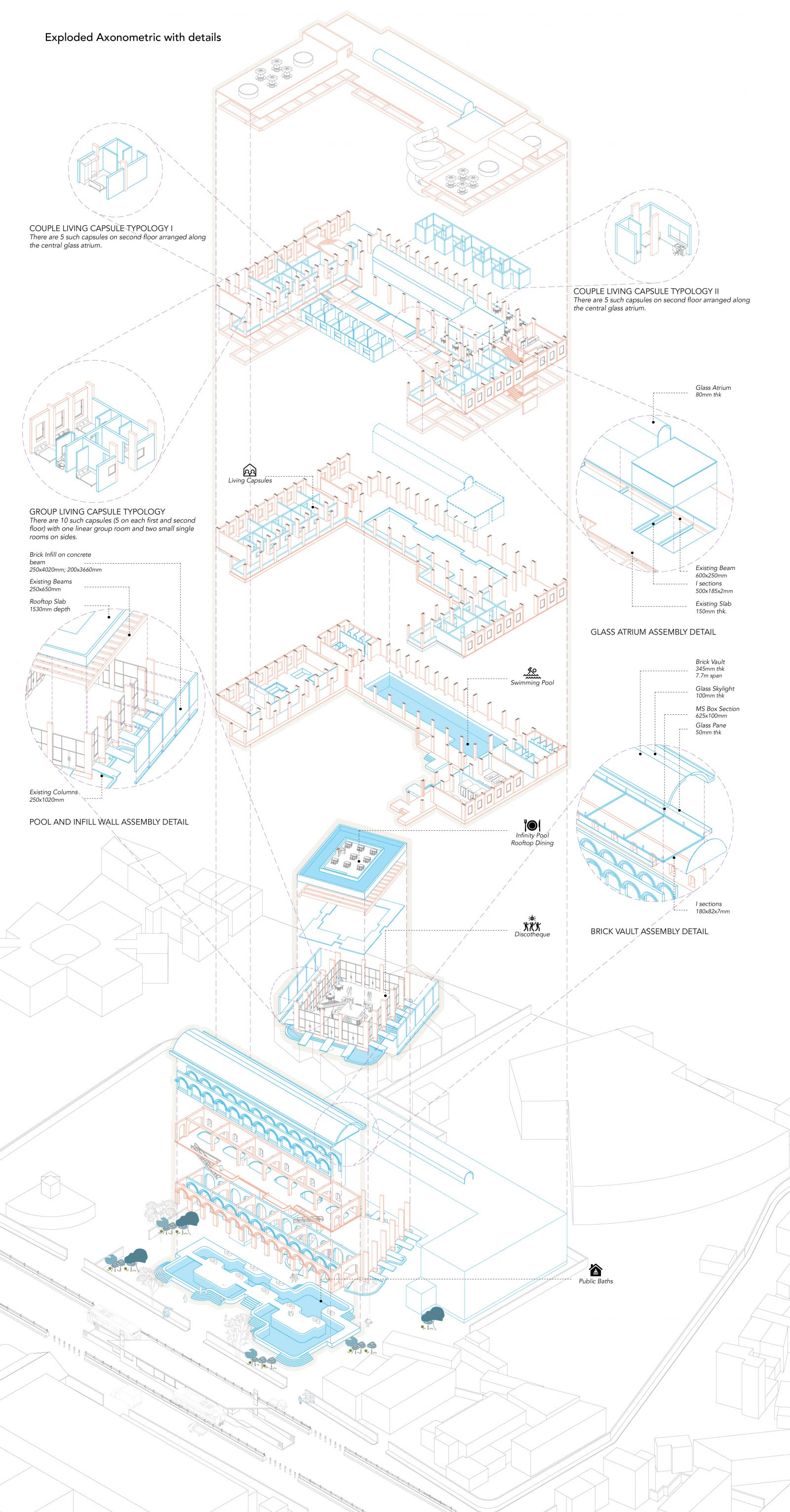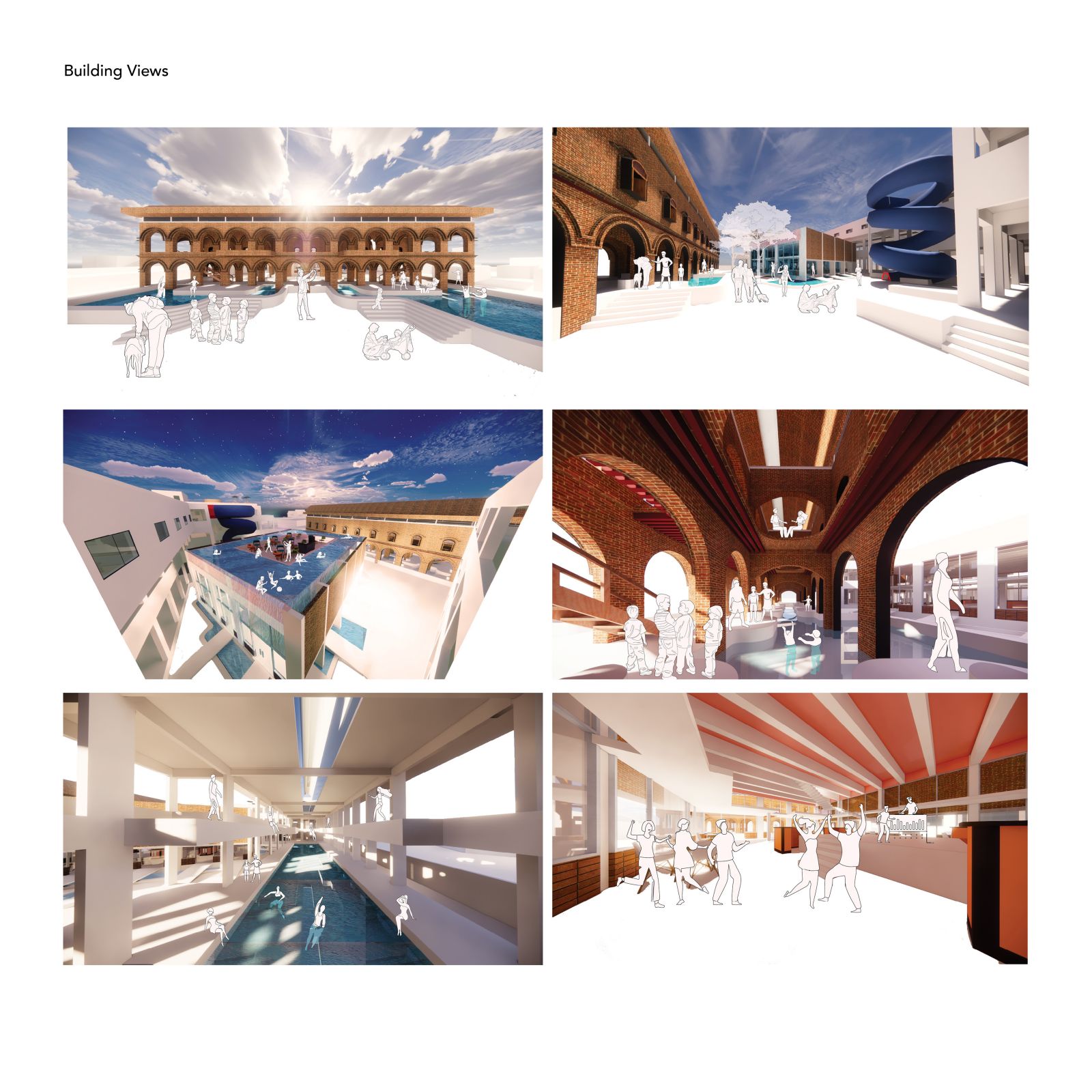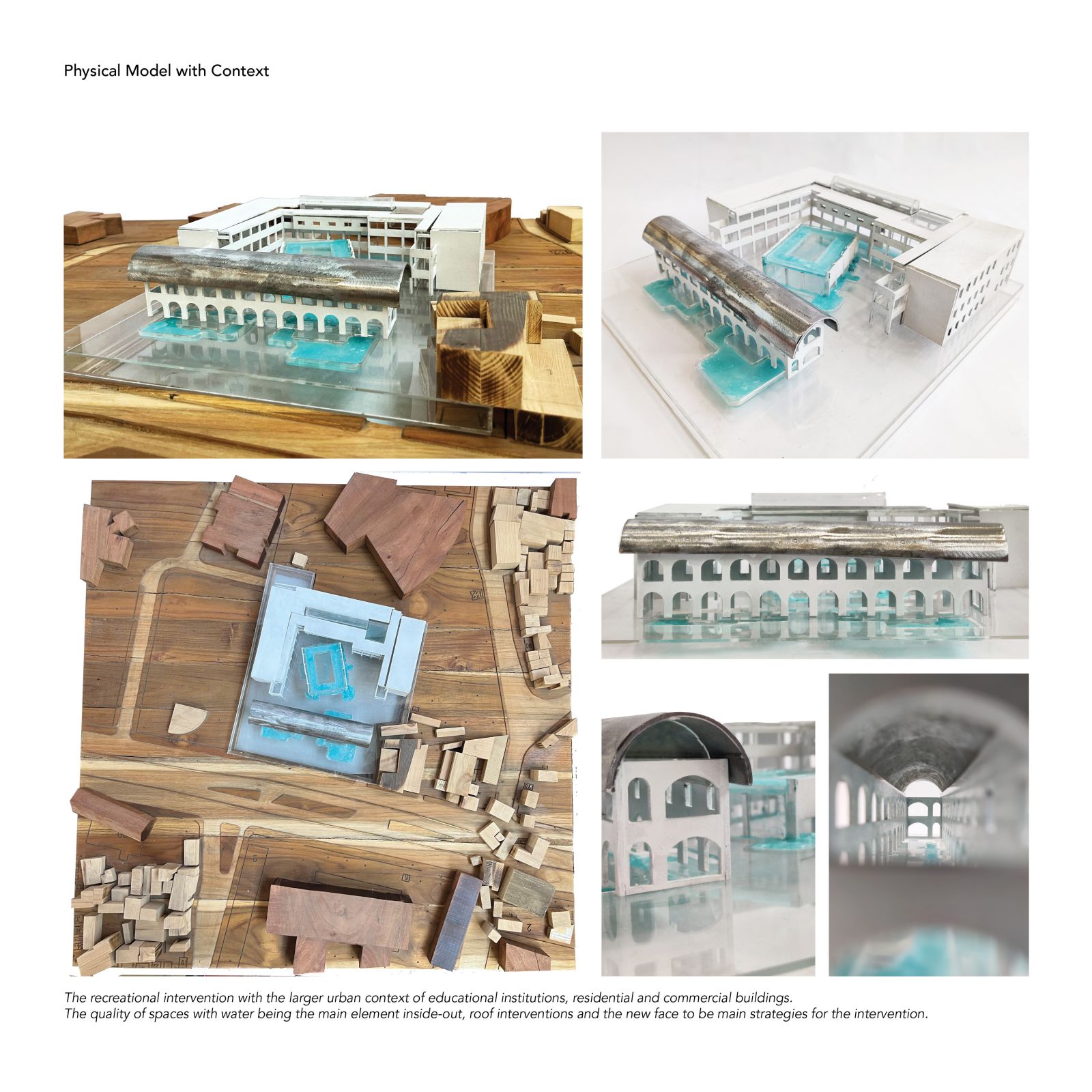- Student Prachi Aggarwal
- Code UG191027
- Faculty Architecture
- Tutor/s Manuel M de las heras,Sanskruti Panchal
- TA Shashikant Bhambhani (VF)
Aquabeat aims to be a hotspot for Ahmedabad offering varieties of water baths, hence giving a thriving recreational center amidst the old city. The city has a mix of land uses from heritage, residential, commercial but lacks recreational public spaces where people can come and spend a day of relief. In the heart of the city with a rich urban landscape, the vision comes to life as water baths like no other, seamlessly integrates with transitory living spaces and a vibrant club to create a haven of relaxation and excitement. The water being the major element is in different functions from public baths, infinity pools, swimming pools and water relaxation treatments. The center gives an entire day of thrilling activities. The baths vary from being public to private with different uses. Situated on upper floors are the living quarters which provide picturesque views of the water bodies and the hustle bustle of historic alleys. The living quarter brings tourists and residents alike to the same table and allows for the exchange of conversations and self-development for residents who always look up to a certain class as their aspirations. As dusk descends, the water baths are enlivened by the pulsating discotheque, where music and dance resonate. The discotheque boasts a contemporary design featuring sleek lines, dynamic spaces, and state-of-the-art sound and lighting systems. Here, guests can unwind to the beats of renowned DJs, and dance the night away under the stars. The rooftop terrace offers an infinity pool which continuously drizzles water down into the water channels. The cafeteria alongwith the panoramic views of Ahmedabad’s skyline creates an unforgettable backdrop for memorable gatherings and celebrations. The vision of this recreational space in the middle of the old city provides an equitable space of leisure to all communities and hence provides a new definition of urban leisure. It breaks the barrier of an old heritage way of building and brings an intervention that responds to the present aspirations of today’s population.
